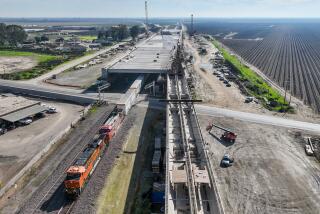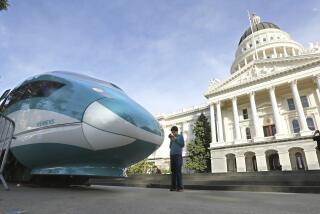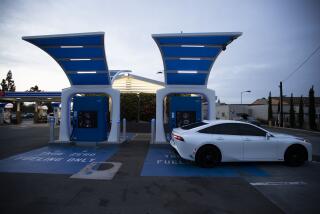Lost: a Noble Prize
By all accounts, the National Academy of Sciences has done a credible job in narrowing the number of sites for the $4.4-billion superconducting super collider, and the academy’s proposals should be rigorously respected.
This could have been a procedure dangerously corrupted by politics. The 21 educators, scientists and industrial managers who made the study for the academy appear to have avoided issues extraneous to an objective identification of the best sites from a scientific point of view. They have given the Department of Energy eight proposals, any one of which would meet the high standards that are required for this critically important project.
The report nevertheless has stirred rumblings from those with a pork-barrel mentality, mutterings of opposition to funding from some of the disappointed suitors. Some of that disappointment comes from Californians who pushed hard for consideration of the state’s two sites--one near Sacramento, the other near Stockton. They can hardly complain that their case was not heard. Six of the 21 committee members are from California institutions. The fact is, the committee concluded, that there are better sites. Clearly California was handicapped by its geology, which would have required exotic tunnel technology for the 53-mile underground proton race track, and by its seismic risks.
Funding this program will be a daunting task at a time when President Reagan has mobilized strong resistance to federal spending and to any tax increase. But the President has come to appreciate the importance of this project if the nation is to maintain its technological vigor. It would be an appropriate priority for his last year in office.
The California congressional delegation can play an important role in the legislative challenges that lie ahead. It should be the first to back full funding with the realization that this is a national challenge with potential benefits extending to every state, not just to the super-collider site--be it Arizona, Colorado, Illinois, Michigan, New York, North Carolina, Tennessee or Texas. Gov. George Deukmejian also can play a role in mobilizing support, setting aside his disappointment that California is not among the finalists but understanding that, regardless of where the new research is done, California will benefit exceptionally because of its own technological preeminence.






